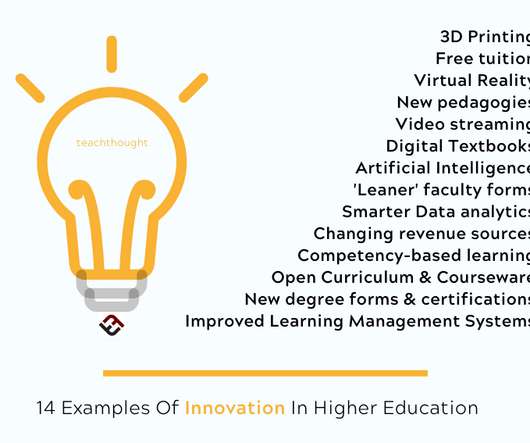What If We Measured Learning Through Skills Gained, Not Time Spent in the Classroom?
Edsurge
APRIL 18, 2023
But neither the endorsement of powerful entities nor the enactment of new education policies assures that the push to create a skills-based education system will run like, er, clockwork. There is value in peer groups, in learning to collaborate at school.” I think the testing industry is very nervous,” he says.


























Let's personalize your content